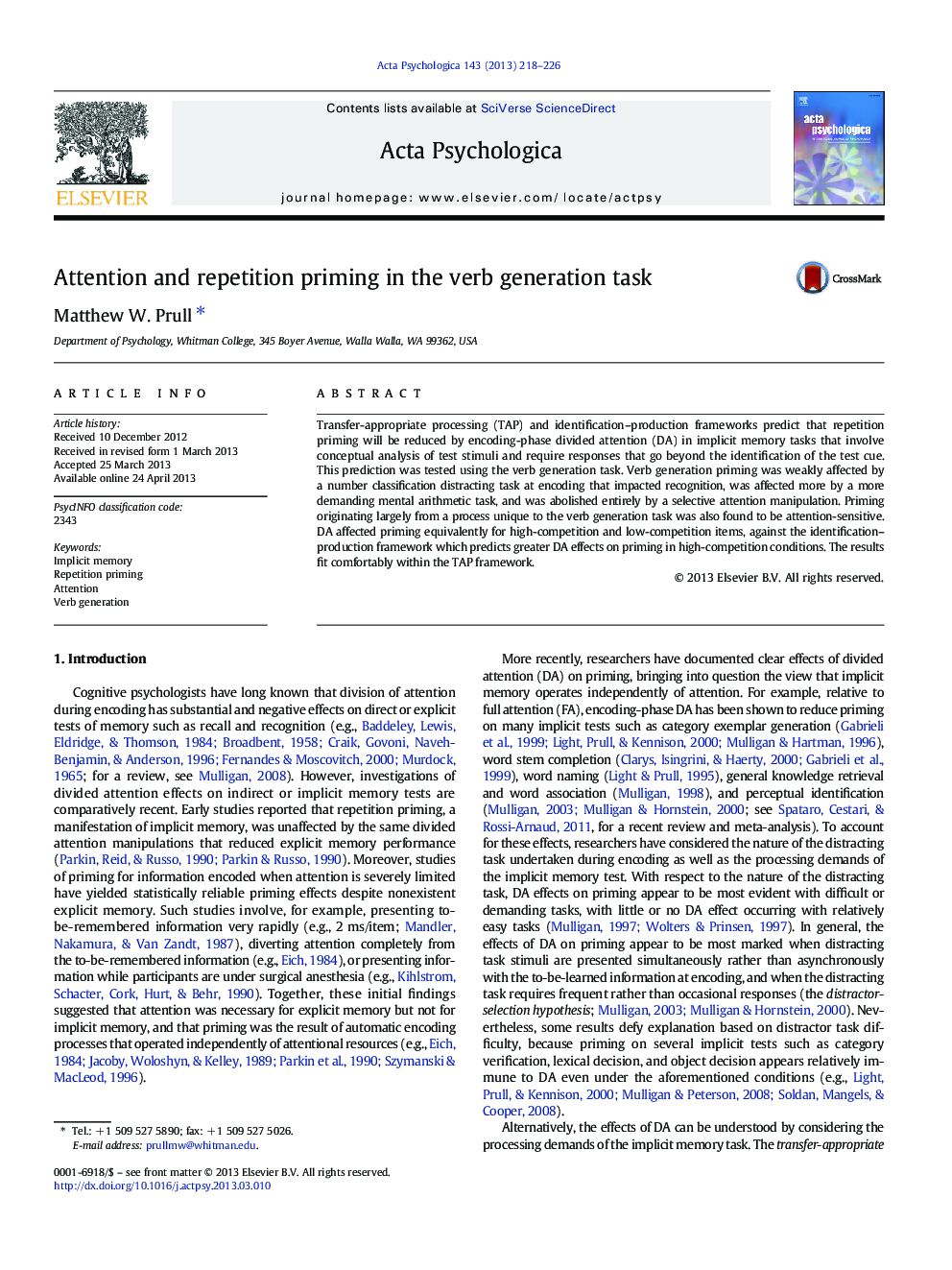| Article ID | Journal | Published Year | Pages | File Type |
|---|---|---|---|---|
| 919834 | Acta Psychologica | 2013 | 9 Pages |
•Examined whether verb generation repetition priming is attention-dependent.•Priming was reduced following divided attention and selective attention.•DA did not differentially affect high-competition and low-competition priming.•Results fit comfortably within the transfer-appropriate processing framework.
Transfer-appropriate processing (TAP) and identification–production frameworks predict that repetition priming will be reduced by encoding-phase divided attention (DA) in implicit memory tasks that involve conceptual analysis of test stimuli and require responses that go beyond the identification of the test cue. This prediction was tested using the verb generation task. Verb generation priming was weakly affected by a number classification distracting task at encoding that impacted recognition, was affected more by a more demanding mental arithmetic task, and was abolished entirely by a selective attention manipulation. Priming originating largely from a process unique to the verb generation task was also found to be attention-sensitive. DA affected priming equivalently for high-competition and low-competition items, against the identification–production framework which predicts greater DA effects on priming in high-competition conditions. The results fit comfortably within the TAP framework.
